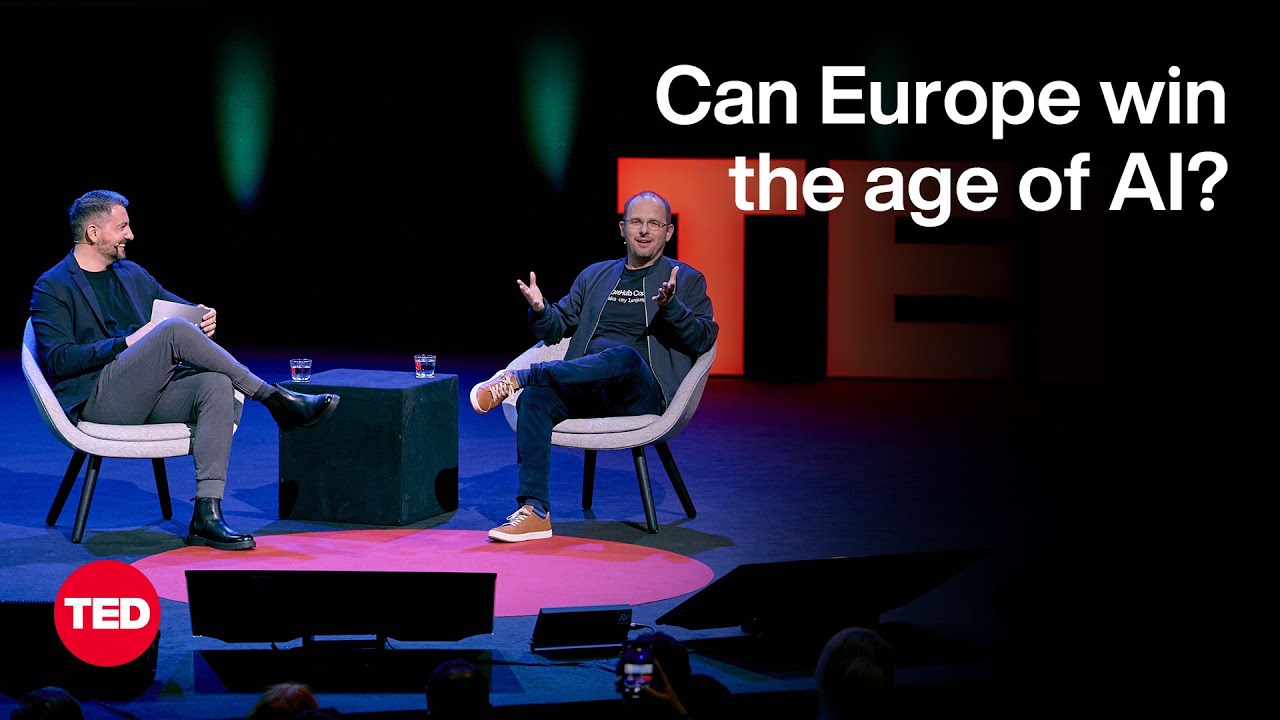In his TED talk, Thomas Dohmke, CEO of GitHub, reflects on his journey from East Berlin to leading a major tech platform, highlighting the need for Europe to improve education, startup ecosystems, and infrastructure to retain talent and foster innovation. He expresses optimism about AI’s potential to democratize coding and enhance developer productivity, envisioning a future where a billion developers thrive with the support of AI tools like GitHub Copilot.
In the TED talk, Thomas Dohmke, CEO of GitHub, shares his personal journey from growing up in East Berlin to leading one of the most pivotal platforms for developers. He recounts his early experiences with computers, starting with a Robotron in a geography lab and later acquiring a Commodore 64. Dohmke emphasizes the lack of resources and community support during his formative years, contrasting it with the wealth of information available today. His career trajectory led him from independent software development to the acquisition of his company by Microsoft and ultimately to his current role at GitHub.
Dohmke discusses the challenges Europe faces in retaining talent and fostering innovation, particularly in the tech sector. He identifies three key areas for improvement: education, the startup ecosystem, and infrastructure. He argues that coding should be taught in schools from an early age, similar to traditional subjects, to prepare future generations for a technology-driven world. Additionally, he highlights the regulatory burdens that make it difficult for startups to thrive in Europe, suggesting that a more flexible approach could encourage innovation.
The conversation shifts to the impact of AI on the tech landscape, with Dohmke expressing optimism about its potential to democratize coding and empower developers. He believes that AI tools like GitHub Copilot can help bridge language barriers, allowing individuals to learn coding in their native languages. This accessibility could inspire a new generation of developers, regardless of their background or resources, by providing immediate assistance when they encounter challenges.
Dohmke acknowledges the skepticism surrounding technological advancements, particularly the fear that AI could render certain jobs obsolete. However, he counters this by asserting that the demand for software developers will continue to grow, as the complexity of software development increases. He emphasizes that AI will not replace developers but rather enhance their productivity, allowing them to focus on innovation while automating repetitive tasks.
In conclusion, Dohmke envisions a future where a billion developers can thrive, supported by AI and a more conducive environment for innovation. He highlights GitHub’s commitment to putting developers first and fostering creativity through tools like Copilot. While he teases upcoming announcements from GitHub, he remains focused on the broader goal of empowering individuals to learn coding and contribute to the ever-evolving tech landscape.
